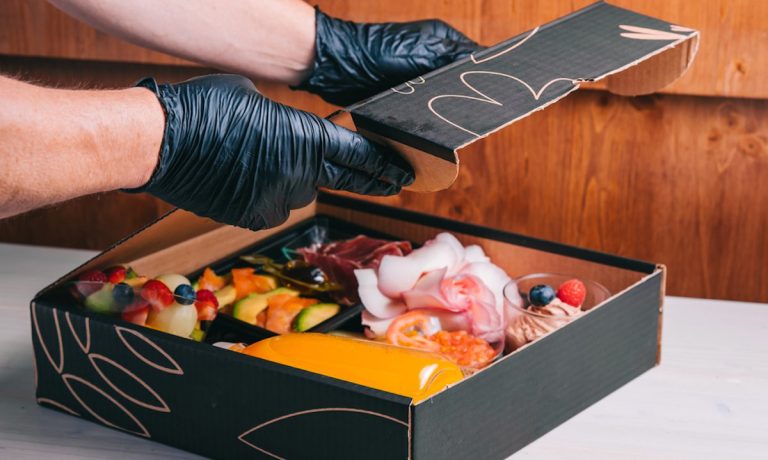Instacart Acquires Catering Software Company in Push to Compete With Restaurant Aggregators

The bring-it-to-me economy is expanding across all of consumers’ food needs. Restaurant-cooked meals and raw groceries make up a relatively limited portion of all food consumed, with hybrid categories such as meal kits, heat-and-eat meals and catered foods also accounting for a significant percentage. Noting this opportunity to expand its commerce occasions, Instacart, the largest online grocery platform in North America, announced on Thursday (Oct. 7) that it is acquiring catering software company FoodStorm.
FoodStorm’s products include software for grocers to process online catering orders, and for corporate caterers, retailers and quick-service restaurants (QSRs) to do the same — though somewhat unsurprisingly, Instacart appears to be focused primarily on the features geared toward grocers.
“Our goal is to help our retail partners increase their sales and ensure more of their customers’ everyday meals come from the grocery store,” Mark Schaaf, chief technology officer at Instacart, said in a statement. “For retailers, this new enterprise solution helps them bring even more of their inventory online, enhance their eCommerce capabilities, grow their business and meet the evolving needs of their customers.”
Additionally, Schaaf described Instacart more broadly as a “retailer enablement platform,” adding that, through this partnership, Instacart will “integrate [FoodStorm’s] end-to-end order-ahead and catering platform” into its offerings. Grocers on the Instacart marketplace will now be able to offer catering.
This comes just days after Instacart announced another move to capture more of consumers’ routine food spending. The company partnered with its first direct-to-consumer (D2C) heat-and-eat and meal kit provider, Sunbasket, to bring the company’s meal solutions to Instacart shoppers. Between the FoodStorm acquisition and the Sunbasket partnership, it appears that Instacart is focused on ways to grow its reach to additional food categories.
As the company is expanding beyond its pure-play model, major restaurant meal delivery services are moving into Instacart’s territory, announcing major partnerships with grocers that could challenge the online grocery platform’s hold on the category. Branching out may be what it takes for Instacart to survive in the ever-evolving on-demand economy.
Read more: DoorDash Challenges Instacart’s Hold on Grocery With New Albertsons Partnership
And also: Uber Eats Devours Rideshare Business as Company Doubles up on Groceries
Findings from PYMNTS’ report, The Bring-It-to-Me Economy, created in collaboration with Carat from Fiserv, which surveyed over 5,200 U.S. consumers between April 8 and April 18 to learn how their shopping habits have evolved since March 2020, indicated that diners are opting for meals on-demand more than ever. They are now 31% likelier to eat their restaurant orders at home than they are to dine at a restaurant, and about half of all consumers are ordering delivery more often than before the pandemic. Additionally, 46% are ordering groceries online more than they were prior to March 2020.
Related news: Bring-It-to-Me Economy Ascends as Consumers Embrace Home-Centric Lifestyles
“This is a huge growth opportunity for grocers, and we’ve seen increased demand for our products as more customers are searching for seamless online and in-store ordering capabilities,” FoodStorm CEO Rob Hill commented in the news release announcing the acquisition. “Grocery is an incredibly complex retail category, making the need for enterprise-grade solutions like FoodStorm and Instacart critical to the long-term success of the industry we all rely on to put food on our tables.”